If you’ve been exploring the online world lately, you’ve likely come across a peculiar combination of four letters in your social media feeds. It’s almost become a social norm to ask, “What’s your MBTI?” But why do young people have such an intense fascination with MBTI, and what’s the allure behind it?

What is the MBTI?
The MBTI, or Myers-Briggs Type Indicator, is a popular personality assessment created by Katharine Cook Briggs and her daughter, Isabel Myers-Briggs. This test sorts people into 16 different personality types by examining them along four key dimensions.
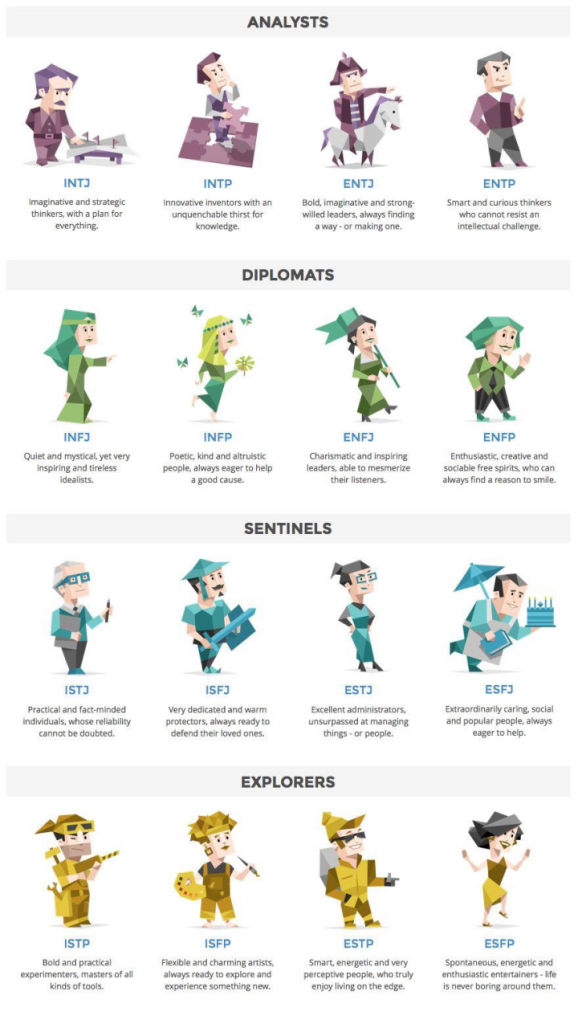
These four dimensions are:
- Extraversion (E) or Introversion (I), representing the source of an individual’s mental energy, whether from the external world or within.
- Sensing (S) or Intuition (N), representing how an individual perceives information, focusing on specific details and reality (Sensing) or concepts, theories, and future trends (Intuition).
- Feeling (F) or Thinking (T), indicating how individuals make decisions and prioritize values (Feeling) or logic and criteria (Thinking).
- Judging (J) and Perceiving (P), reflecting an individual’s approach to life, either preferring structure, deadlines, and goals (Judging) or adaptability and spontaneity (Perceiving).

What Makes MBTI So Captivating?
The widespread enchantment with MBTI taps into a deep philosophical question: Who am I? However, it doesn’t stop there. It also delves into questions like “Who do I aspire to be?” and “How do I want others to perceive me?” When taking the test, individuals gain a clear insight into their ideal selves and the gap between their current selves and their aspirations. Essentially, MBTI helps users find their path towards their ideal selves.
Then there are the memes! Every day, countless people actively search for, consume, and share MBTI content online. In this process, fans shift from being passive consumers to active creators. And they love it. One of my friends, an INFP, once said, “Honestly, I’m not that into MBTI itself. I take the test and move on. But I absolutely adore the creative memes that people come up with. I check out @mbti.memes regularly.”

I guess why people like memes is because memes can distill complex ideas and emotions into bite-sized, relatable humor. Memes take the often abstract world of MBTI personality types and translate it into digestible, shareable content. They serve as a gateway to the world of MBTI, making it more accessible and engaging for a wider audience.
Additionally, memes foster a sense of belonging and connection within the MBTI community. They create a shared language that transcends personality types and allows people to express their unique experiences. When you find a meme that perfectly encapsulates your thoughts or feelings, it’s as if someone out there truly understands you, and that connection is what makes the MBTI meme culture so enjoyable. So, your enjoyment of MBTI memes isn’t just about humor but also about the sense of belonging and relatability they offer.
This might explain why, despite MBTI’s lack of scientific consensus, testability issues, and internal contradictions1, millions of people keep taking the test year after year. Furthermore, in reality, the results could apply to almost anyone, which is known as the Barnum Effect. The “Barnum effect” is the phenomenon where people willingly accept personality interpretations supposedly derived from assessment results, even though the descriptions contain information that could apply to just about everyone2. The same effect is used when crafting horoscopes to make people feel like they’re tailor-made for them.
To me, MBTI is a tool for self-discovery and leisure, offering some insights and comfort. While it can be entertaining and enlightening, it shouldn’t be taken as the ultimate key to understanding yourself or others. Human beings are wonderfully complex, and no set of four letters can fully capture the essence of an individual.
So, by all means, enjoy MBTI and the creative memes, connect with friends and let it be a source of fun and curiosity in your digital life. Just remember that we are all uniquely diverse, and the true essence of a person goes far beyond any personality label!
And what are your thoughts on MBTI? Do you find it insightful or just a fun way to pass the time? And also, what are some of your favorite MBTI memes? Feel free to share in the comments below!” Here are some, enjoy!

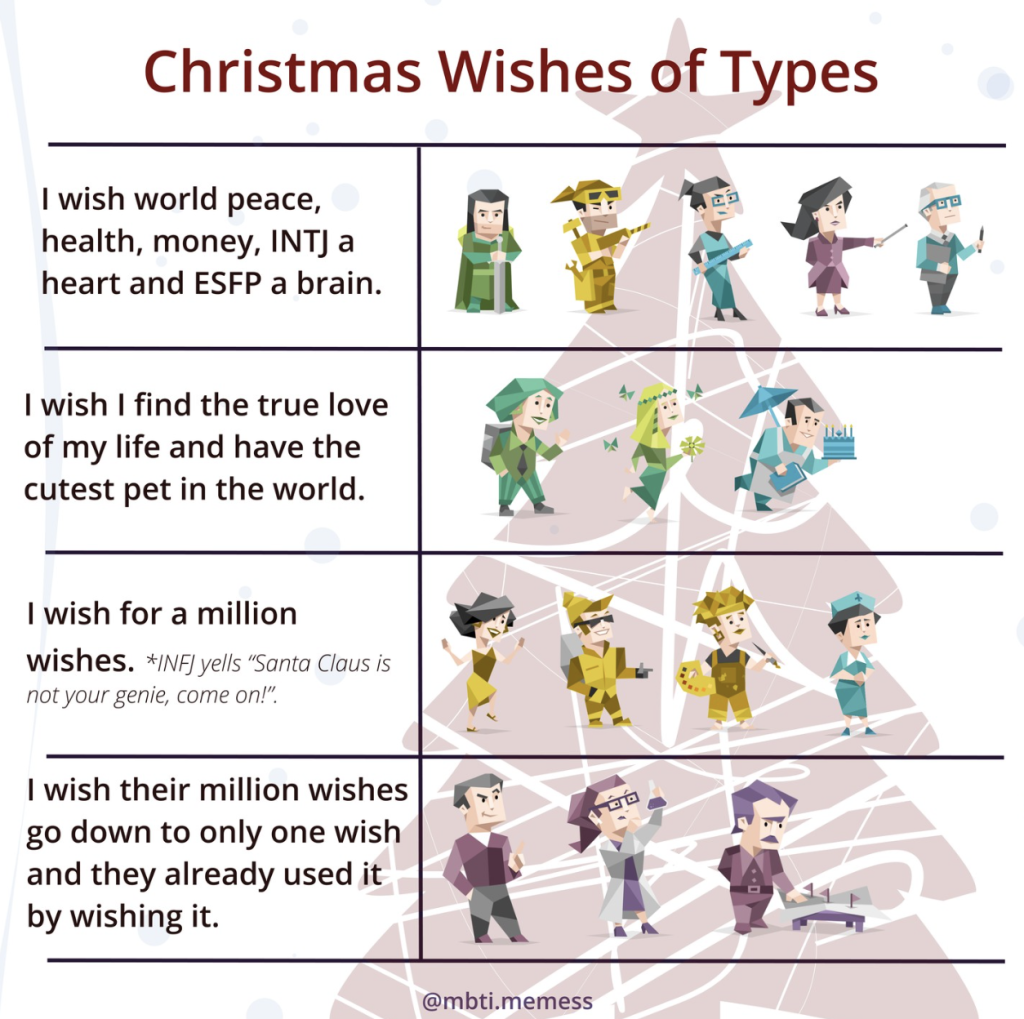



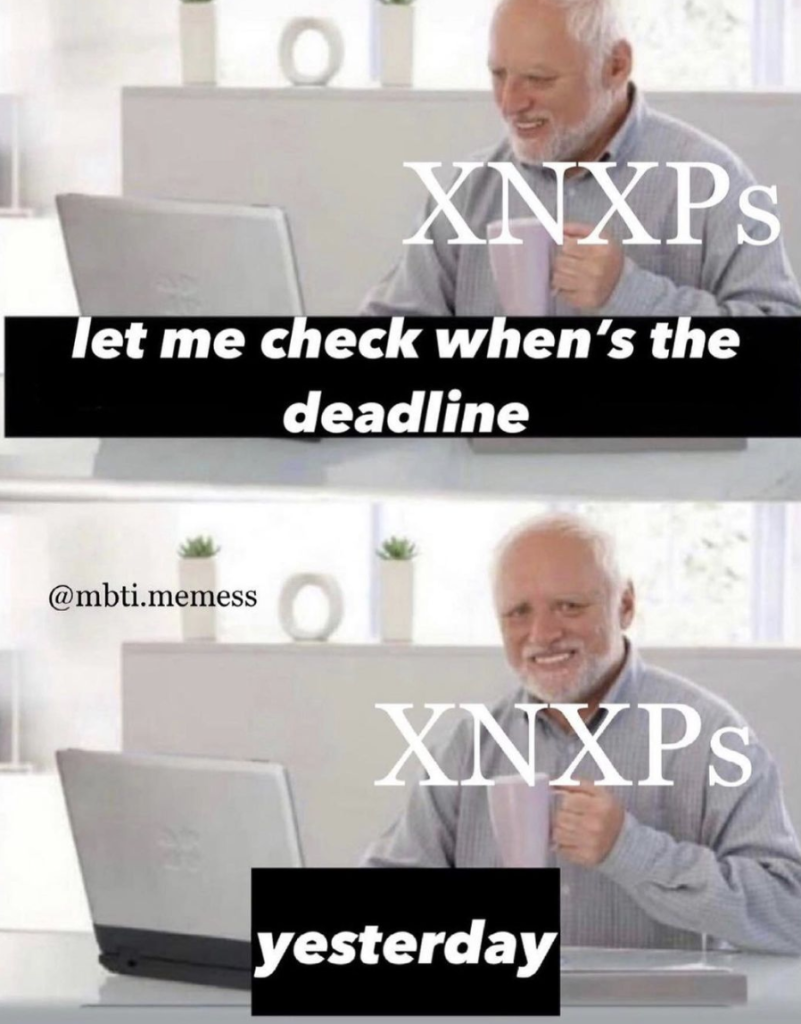
- Stein, R., & Swan, A. B. (2019). Evaluating the Validity of Myers-Briggs Type Indicator theory: a Teaching Tool and Window into Intuitive Psychology. Social and Personality Psychology Compass, 13(2), 1–11. ↩︎
- Snyder, C. R., Shenkel, R. J., & Lowery, C. R. (1977). Acceptance of personality interpretations: The “Barnum effect” and beyond.. Journal of Consulting and Clinical Psychology, 45(1), 104–114. ↩︎


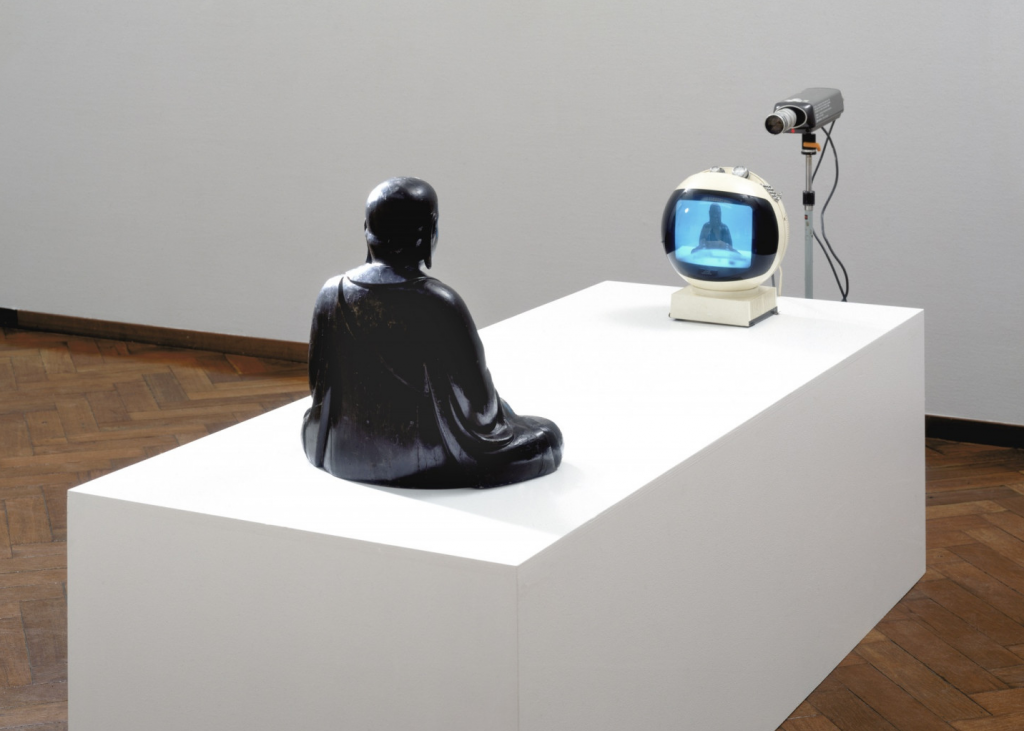
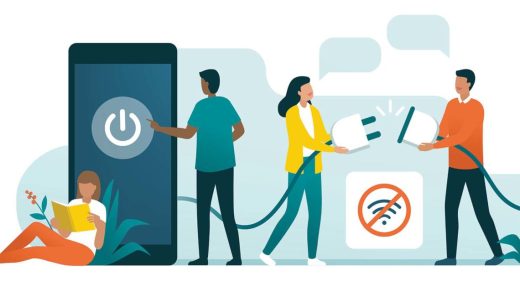
Recent Comments